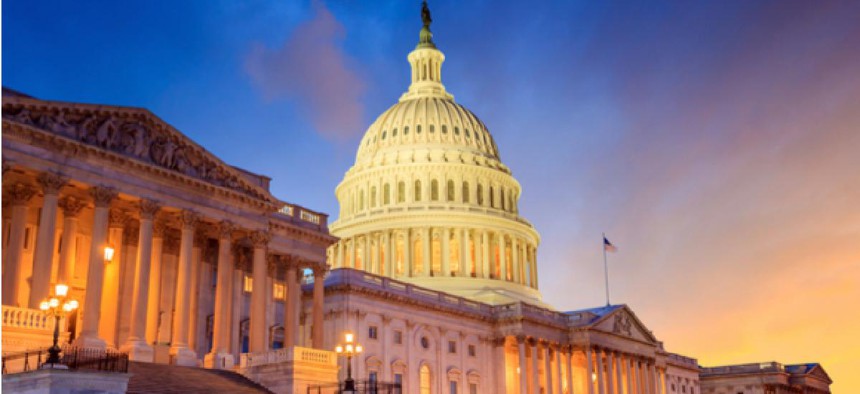Congress appears headed toward short-term funding

The Trump election victory changes the calculation on duration of the next government funding package.

With Donald Trump's win in the presidential election, Congress appears poised to pass a short-term continuing resolution to fund the government through February or into March, to afford the new president's team the opportunity to help legislate government spending.
A mix of continuing resolutions and full appropriations to fund the federal government through fiscal year 2017 seemed to be on tap before the election, when Democrat Hillary Clinton was the odds-on favorite to win, and Republicans were threatened with losing control of the Senate.
The current continuing resolution expires Dec. 9, and there's not much time in the legislative calendar to deal with the funding issue. Lawmakers returned to Capitol Hill this week, but are recessing for Thanksgiving before returning to take up funding. While House and Senate leaders in their brief public statements since the election haven't committed yet to a course of action, Hill conservatives are seeking a temporary bill.
Rep. Bill Flores (R-Texas), chairman of the conservative Republican Study Committee, said, "The House should take the first step and pass a very short-term continuing resolution that funds the federal government until the Trump administration has put its team in place."
The White House is looking for a longer-term spending package. In a Nov. 10 briefing, White House Press Secretary Josh Earnest said, "we have consistently advocated for Congress fulfilling its responsibility to pass budgets that give agencies in the federal government certainty about the budget picture." He stressed that funding predictability was especially important for the military and intelligence agencies "that expend significant sums of money to keep us safe ... just funding them two or three or four months at a time is not a smart way to do it."
Professional Services Council President David Berteau urged congressional leaders to pass a full-year bill in a Nov. 14 letter. He wrote that continuing resolutions "create deep uncertainty rather than stable, predictable requirements and resources." He added, "Congress owes it to President-elect Trump to finish its work for this year and fully fund the government for the rest of FY17. The negative consequences of CRs are too great to do otherwise, both for the government and for its supporting contractors."
The exiting Obama administration and other supporters of a full-year spending bill may not have much leverage, however.
"All the signals are, they're going to have a straight-line [continuing resolution], short term," Rep. Gerry Connolly (D-Va.) told FCW.
One wildcard is the pace of the transition itself. The effort is reportedly stalled, as control of the transition fully switches from New Jersey Governor Chris Christie to Vice President-elect Mike Pence.
In a brief Nov. 15 press conference, House Speaker Paul Ryan (R-Wis.) said Republicans would make their plans for the lame duck in consultation with the Trump administration-in-waiting.
"Welcome to the dawn of a new unified Republican government," Ryan said.



